Acquisition extends a long-term strategy for market growth and channel expansion. Atlanta—Rheem has announced its intent to acquire Nortek Global HVAC (NGH), a leading manufacturer of air conditioning products, from Madison Industries. NGH is based in O’Fallon, Missouri with manufacturing in Saltillo, Mexico, and a distribution center in Poplar Bluff, Missouri. “Nortek Global HVAC has Read more
Plumbing
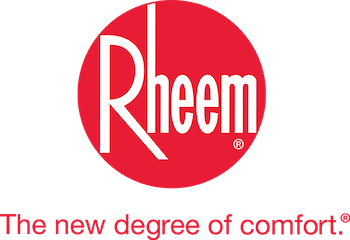 “Nortek Global HVAC has a history of delivering market leading innovations going back over 100 years. Like Rheem, NGH has a collaborative culture with an unwavering commitment to the customer,” said Mike Branson, President Global Air at Rheem. “NGH has a remarkable team that brings unique products, operational capabilities, and market channels to complement Rheem’s expanding Air and Water businesses.”
“Nortek Global HVAC has a history of delivering market leading innovations going back over 100 years. Like Rheem, NGH has a collaborative culture with an unwavering commitment to the customer,” said Mike Branson, President Global Air at Rheem. “NGH has a remarkable team that brings unique products, operational capabilities, and market channels to complement Rheem’s expanding Air and Water businesses.”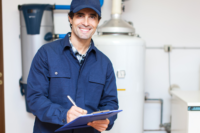
If you are in the process of setting up your own business then you may be researching how it’s best to do this. Running your own business has many benefits including not having to answer to a boss. It can be tricky getting everything right but when you do, your business will go from strength Read more
If you are in the process of setting up your own business then you may be researching how it’s best to do this. Running your own business has many benefits including not having to answer to a boss. It can be tricky getting everything right but when you do, your business will go from strength to strength.
Check out the article below to find out more about the benefits of having your own business and how you set it up.
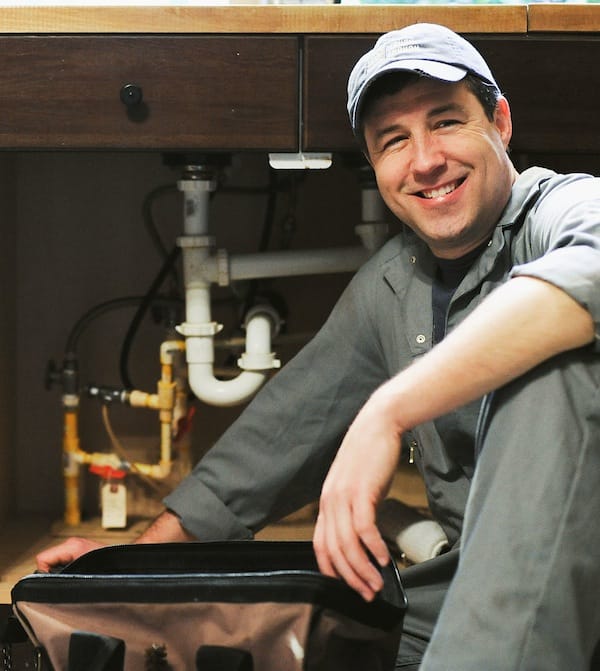
Benefits
Set Your Own Hours
When you decide to start your own plumbing business, one of the best benefits can be choosing your own hours and finishing when you want. When you work for a company, you can be restricted on working set hours that the company chooses. Many plumbers enjoy setting their own as it gives a bigger sense of freedom.
Choose Your Rate Of Pay
Another wonderful benefit of having your own business is setting your own rate of pay. This can be a bit tricky as you want to charge enough to make a living but not too much that you don’t get any customers. Make sure you do your research to find out how much other plumbers are charging in your area.
Decide Where You Are Going To Work
There are various places you can work and cover as a plumber. You could be a residential or commercial plumber, commercial plumbers will work in many businesses ensuring they can stay open and not close due to pipes, drains, or toilet issues. Residential plumbers enjoy working with members of the general public so figure out which option is best for you. Of course, you might decide to cover both.
How To Get Started
Here’s a quick guide on how you can get your plumbing business off the ground.
Be Prepared
It is essential you take the right training to become a plumber as you need to know what you are doing. Research different courses and attend these in full, it is also useful to gain different types of experience while training. It might be beneficial to learn on the job, such as undertaking an apprenticeship.
When you have fully trained you will be able to set your rate of pay slightly higher than those still studying.
Do Your Research
When you are just starting out, it is important to carry out market research and know who your target audience is. This will come when you decide where you are going to work and which areas you are going to cover. You will need to choose areas around where you live and see if there is a calling for plumbers. Also check businesses to see if they are already working with a plumber and how much they pay for the privilege.
Know Your Goals
Lastly, all businesses need to set goals for themselves. This is so there is something to work towards and an end result. Set yourself SMART goals for the next year and where you see yourself in five years. For instance, you could hire more staff and take on more training courses.
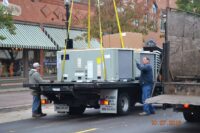
As a significant portion of energy consumption in both residential and commercial settings, HVAC systems offer plenty of opportunities for efficient improvements. HVAC and plumbing provide crucial comfort and sanitary systems for each building, but the systems are not always installed, implemented, or used efficiently. Ineffective use of these systems can lead to lost energy Read more
As a significant portion of energy consumption in both residential and commercial settings, HVAC systems offer plenty of opportunities for efficient improvements. HVAC and plumbing provide crucial comfort and sanitary systems for each building, but the systems are not always installed, implemented, or used efficiently. Ineffective use of these systems can lead to lost energy, an excessively high comfort threshold, or greater stress on the equipment. By considering these factors, HVAC professionals can target their efforts to greater efficiency and optimal system performance.
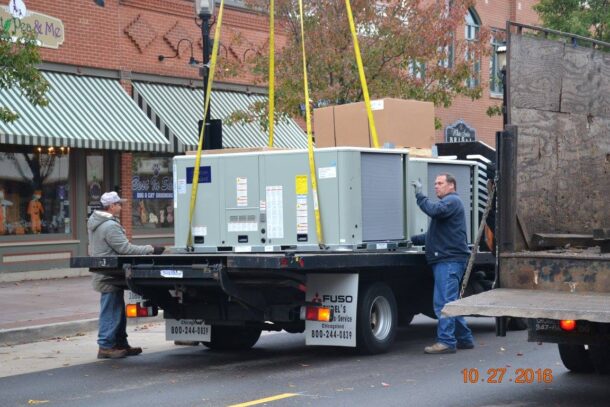
Ensure Optimal Installation
Optimal installation can improve output, decrease the likelihood of overuse or system failure, and maintain a higher level of efficiency. Proper sizing is key. HVAC specialists should perform thorough load calculations and estimate the needs for temperature and humidity control in the space to determine the correct output range for the equipment. Installing temperature sensors in places without sun exposure or drafts can help to ensure accurate temperature control. Comprehensive testing of the equipment post-installation can confirm that the system works properly with correct output and high efficiency.
Optimize Damper Position
Damper position controls the volume of air that can enter a space at any given time. Variable air volume (VAV) boxes adjust the temperature and rate of airflow based on the load. In many cases, a VAV box’s damper position sits open to a higher degree than necessary, leading to wasted energy and improper temperature control. Setting the damper position to the minimum according to ASHRAE standards can minimize energy consumption without compromising performance.
Utilize Smart Data Systems
Smart systems can predict usage needs based on existing data about operation in similar spaces and can also adjust schedules and other controls for the needs of a particular space. Systems collect data about routine usage and use that information to create efficient settings for HVAC and plumbing. Sensors track temperature in individual rooms, providing real-time data about system efficacy and allowing owners to tailor usage for maximum comfort and efficiency. Use of these systems can decrease the number of manual overrides, as well as maintaining a precise level of temperature and humidity control.
Implement Temperature Controls
Dynamic temperature controls can minimize the use of energy to heat supply air or water, reducing energy consumption without compromising the ability to meet demand. Supply air controls can dictate the temperature of the supply air, adjusting upward or downward depending on the load. Similarly, boiler and water heater temperature controls can adjust the minimum or maximum temperature of the operating limit based on demand. Systems that change these limits dynamically can provide better heating for high demand, while minimizing use during lower load times.
Decrease Unnecessary Operations
A system that works automatically can provide heating, cooling, and ventilation when none is needed, calling for attention to unnecessary operation. Inaccurate scheduling, excessive manual overrides, and a lack of zoning systems can contribute to wasted energy. Specifically, owners should create commercial HVAC settings that maintain the proper temperature and humidity for the right times, minimizing use outside of peak hours. Adjusting ventilation based on occupancy can help to maintain a comfortable indoor temperature for areas with fewer numbers, while maintaining ideal ventilation in crowded spaces. Implementing smart automated systems can make the transition effortless, allowing building owners to manage dynamic heating, cooling, and plumbing needs.
Designing an HVAC or plumbing system to meet the needs of a space requires some analysis of overall efficiency. Overuse or ineffective use of a system can make a space feel uncomfortable or unsanitary, while contributing to high energy usage or increased repair needs. Evaluating the installation, setup, and use of each system can highlight ways for HVAC professionals to improve efficiency and performance. By adding smart technology and following best practices in mechanical systems, HVAC technicians and plumbers can eliminate wasted energy and accurately reach the comfort goals for the space.
Author Bio: Michael Carlson is the President of Gene May Heating & Cooling. He has been in the heating and cooling industry for more than 32 years and is the sole owner of the business.
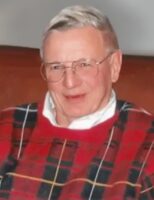
F. Robert “Bob” Kerrigan of Wilmette, Ill., passed away August 17 at the age of 91. According to the Plumbing Contractors Association of Greater Chicago, Bob’s success and impact was seen as second generation co-owner and president of FJ Kerrigan Plumbing Company, Wilmette, Ill., and for his many years of devoted service as a Trustee Read more
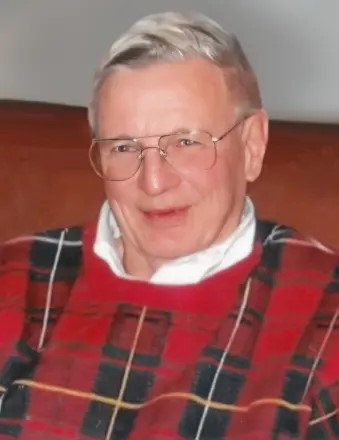 F. Robert “Bob” Kerrigan of Wilmette, Ill., passed away August 17 at the age of 91. According to the Plumbing Contractors Association of Greater Chicago, Bob’s success and impact was seen as second generation co-owner and president of FJ Kerrigan Plumbing Company, Wilmette, Ill., and for his many years of devoted service as a Trustee of the Plumbers’ Local 130 Pension Fund. He will be fondly remembered as a respected plumbing professional and leader.
F. Robert “Bob” Kerrigan of Wilmette, Ill., passed away August 17 at the age of 91. According to the Plumbing Contractors Association of Greater Chicago, Bob’s success and impact was seen as second generation co-owner and president of FJ Kerrigan Plumbing Company, Wilmette, Ill., and for his many years of devoted service as a Trustee of the Plumbers’ Local 130 Pension Fund. He will be fondly remembered as a respected plumbing professional and leader.
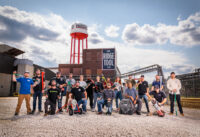
Once-in-a-lifetime VIP trip lets trade professionals go behind-the-scenes at RIDGID RIDGID®, a part of Emerson’s professional tools portfolio, recently hosted their seventh RIDGID Experience, an annual celebration of the skilled trades held at RIDGID headquarters in Elyria, Ohio. Each year, the brand’s signature event rewards select members of the trades with an all expenses-paid, three-day Read more
Once-in-a-lifetime VIP trip lets trade professionals go behind-the-scenes at RIDGID
RIDGID®, a part of Emerson’s professional tools portfolio, recently hosted their seventh RIDGID Experience, an annual celebration of the skilled trades held at RIDGID headquarters in Elyria, Ohio. Each year, the brand’s signature event rewards select members of the trades with an all expenses-paid, three-day VIP trip that features hands-on experiences, fun and camaraderie.
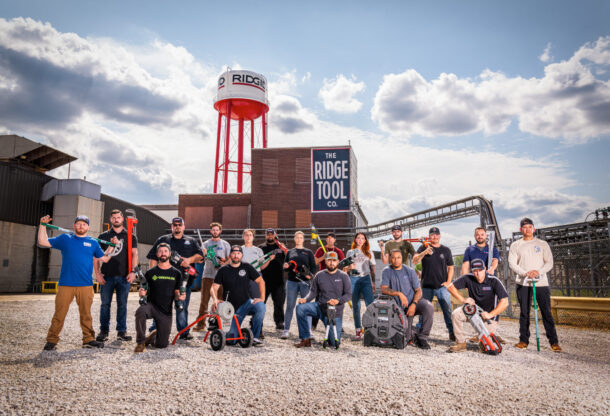
“The enthusiasm for RIDGID Experience continues to grow and this year’s trip was more epic than the last,” said Maddie Suvak, engagement marketing manager, RIDGID for Emerson. “It’s often described as ‘the hottest ticket in plumbing,’ and we loved hosting lifechanging experiences for attendees, who joined us from across the United States and Canada.”
Pat Finley from Indiana described the trip as: “The best three days I could ask for. Friends and memories for a lifetime.” Herb Lisone from California, echoed that sentiment, saying, “Loved every moment! Great brand, great people, great team! Definitely felt the love, run it back!!!”
Participants included:
- Nick Parlet, Webster, NY
- Pat Finley, Frankton, IN
- Germaine Nelson, Bowie, MD
- David Williams, New Braunfels, TX
- Philip Juliano, Boynton Beach, FL
- Laura Giudice, Mississauga, ON, Canada
- Herb Lisone, Sylmar, CA
- David Waldon, Ogden, KS
- Mike Caruso, Moreland Hills, OH
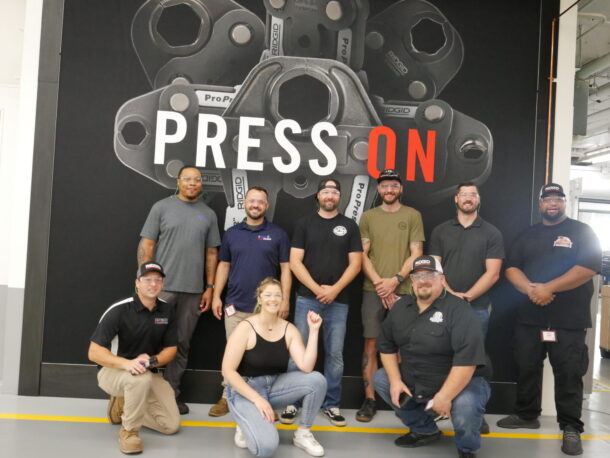
A highlight of the event was a factory tour that invited each guest to build their own iconic RIDGID customized pipe wrench. Guests also received a sneak peek at the latest RIDGID tools in development and provided feedback and insights. They also had the opportunity to network with attendees of Greenlee® Experience, a similar contest hosted by professional tools brand Greenlee. The two concurrent events created a full-scale celebration of the mechanical, electrical, and plumbing trades.
“Our team looks forward to the RIDGID Experience every year, and that’s especially true for our manufacturing team,” said Suvak. “There’s something special about having the people who use our tools get to shake the hands of the people who made them.”
Emerson’s professional tools business, which includes RIDGID as well as the Greenlee® and Klauke® brands, provides the industry’s broadest portfolio of advanced, reliable tools and technologies for the mechanical, electrical and plumbing trades globally. Visit emerson.com/professionaltools for more information.
RIDGID®, Greenlee® and Klauke® are trademarks of Emerson or its subsidiaries. All other trademarks belong to their respective holders.
